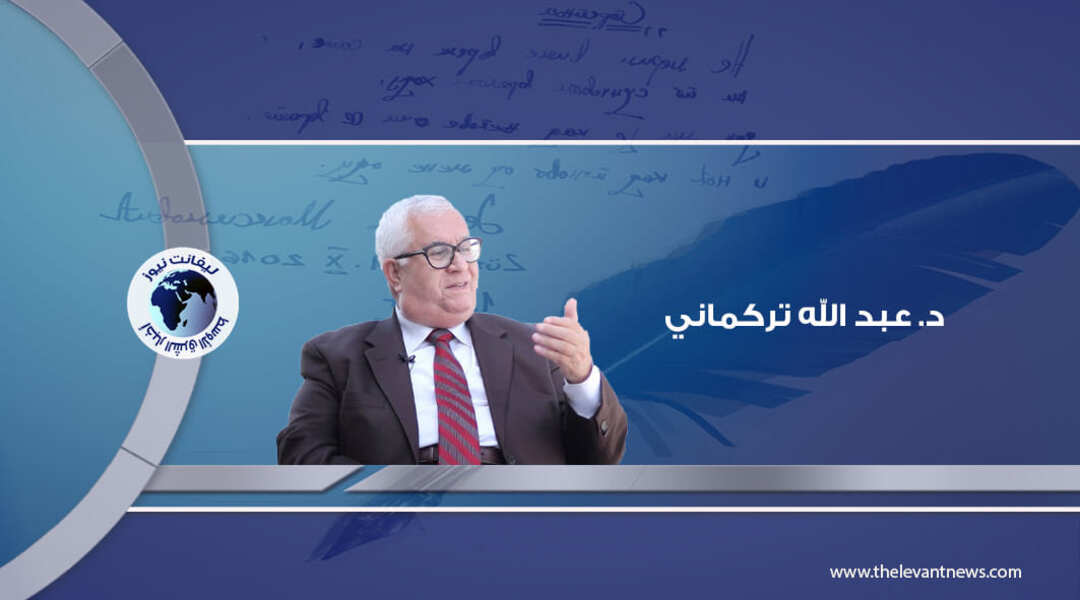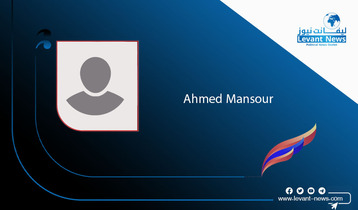-
After the Fall of the Assad Regime

**Dr. Abdullah Turkmani**
After the blood of Syrians has been shed for national democratic change, this change has become a priority on the Syrian agenda following the fall of the regime on the morning of December 8. Therefore, it is essential to attempt to understand the content and levels of this change and to articulate its questions. The Syrian narrative can be summarized in institutional transformation based on a set of values: freedom, dignity, transparency, democracy, and human rights.
The Syrian people have resolved to emerge from a life of slavery, which they have wallowed in for more than 50 years. What needs to change? What should be preserved? How can we ensure future developments? What do we do with the old authoritarian culture? Does change happen on its own, or must it be managed? How long will the transformation process take? Can an entire political culture change to be replaced by another?
The main question is: How can the transition from tyranny to democracy be achieved in Syria? Specifically, how can the impacts of the previous authoritarian regime and the security state be dismantled? How can the political system be re-established in a way that lays a foundation for democracy, which forms the basis for change at all economic, social, cultural, and political levels—necessitating the rebuilding of the modern Syrian state?
Deep transformations in human societies have made democracy and human rights hallmarks of the age. Democracy has become an indispensable necessity, an unavoidable choice; it is the standard against which the viability of other options in politics, society, economy, and culture are measured, granting all these options their human dimension. These transformations can only be genuinely actualized within the framework of a modern state, resting on three pillars: the separation of executive, legislative, and judicial powers, societal oversight of state power, and the submission of state power itself to the laws it enacts.
The majority of the Syrian people have gathered indicators showing that this regime has become mummified and resistant to reform, due to various reasons including profound internal structural flaws, its interpretation of its role and position within the Syrian state, and the nature of the structures it established in alignment with that composition and understanding—especially after the state became synonymous with power, the ruling Ba'ath Party, and the sole leader since Hafiz al-Assad’s coup in 1970.
Syrians have risen against the security state that has dominated every aspect of their lives, deciding that change is needed at all national levels.
### Setting Priorities and Reviewing Goals
Certainly, identifying priorities and re-evaluating the goals to be achieved is an urgent necessity in Syria, focusing on fostering democratic rules, building constitutional institutions, addressing living conditions, modernizing economic and social structures, and achieving sustainable development that enhances Syrian capacities.
Syria stands in dire need of a capable, just, and effective democratic state—one of law, rights, and sustainable comprehensive development. The rights of its citizens are the duties of the state, as a state designed for the entire society. It is a state for all its citizens without exception or discrimination, where individuals and social components actively participate through institutions. The only viable solution lies in establishing a state based on full citizenship founded on an equitable constitution that does not discriminate among its citizens based on religion, sect, or ethnicity.
The issue of democracy is one of the most important lessons we can draw, as the weakening of citizen participation in the developmental process has led to a lack of genuine developmental achievements. Comprehensive progress cannot be realized or maintained in the absence of political change, relying on a broader democratic base and effective enjoyment of political and intellectual freedoms. It is inconceivable to envision Syria for all its citizens without revitalizing civil society and ensuring its institutions are independent of state authority, enabling society to reclaim its political and cultural engagement, which is essential for rebuilding a modern Syrian state.
Thus, the solution to escape the ongoing crisis of the Syrian state is to move from a structure of exclusion and violence to a social-political-cultural structure based on productive work, investment in economic and human resources, and liberation of the will of the nation and its citizens. The correct framework for establishing this structure includes:
- Equal rights and duties of citizenship, as a contract for organizing the relationships between individuals and groups.
- Democracy as the framework for enabling political participation that ensures the separation of powers—executive, legislative, and judicial—and their rotation.
- Comprehensive development to invest in and enhance economic and human resources to establish a productive economy that raises the living standards of the population and secures social justice.
The previous Syrian authority relied on a political-security-economic complex, meaning that no change in the country can occur without dismantling this complex. This complex must be changed, which entails two fundamental things: first, closing the chapter of hereditary eternal rule and restoring the principles of the republican system; and second, lifting the immunity of security apparatuses and subjecting them to legal accountability while changing their structure and doctrine to focus on the security
Tags
You May Also Like
Popular Posts
Caricature
BENEFIT AGM approves 10%...
- March 27, 2025
BENEFIT, the Kingdom’s innovator and leading company in Fintech and electronic financial transactions service, held its Annual General Meeting (AGM) at the company’s headquarters in the Seef District.
During the meeting, shareholders approved all items listed on the agenda, including the ratification of the minutes of the previous AGM held on 26 March 2024. The session reviewed and approved the Board’s Annual Report on the company’s activities and financial performance for the fiscal year ended 31 December 2024, and the shareholders expressed their satisfaction with the company’s operational and financial results during the reporting period.
The meeting also reviewed the Independent External Auditor’s Report on the company’s consolidated financial statements for the year ended 31 December 2024. Subsequently, the shareholders approved the audited financial statements for the fiscal year. Based on the Board’s recommendation, the shareholders approved the distribution of a cash dividend equivalent to 10% of the paid-up share capital.
Furthermore, the shareholders endorsed the allocation of a total amount of BD 172,500 as remuneration to the members of the Board for the year ended 31 December 2024, subject to prior clearance by related authorities.
The extension of the current composition of the Board was approved, which includes ten members and one CBB observer, for a further six-month term, expiring in September 2025, pending no objection from the CBB.
The meeting reviewed and approved the Corporate Governance Report for 2024, which affirmed the company’s full compliance with the corporate governance directives issued by the CBB and other applicable regulatory frameworks. The AGM absolved the Board Members of liability for any of their actions during the year ending on 31st December 2024, in accordance with the Commercial Companies Law.
In alignment with regulatory requirements, the session approved the reappointment of Ernst & Young (EY) as the company’s External Auditors for the fiscal year 2025, covering both the parent company and its subsidiaries—Sinnad and Bahrain FinTech Bay. The Board was authorised to determine the external auditors’ professional fees, subject to approval from the CBB, and the meeting concluded with a discussion of any additional issues as per Article (207) of the Commercial Companies Law.
Speaking on the company’s performance, Mr. Mohamed Al Bastaki, Chairman BENEFIT , stated: “In terms of the financial results for 2024, I am pleased to say that the year gone by has also been proved to be a success in delivering tangible results. Growth rate for 2024 was 19 per cent. Revenue for the year was BD 17 M (US$ 45.3 Million) and net profit was 2 Million ($ 5.3 Million).
Mr. Al Bastaki also announced that the Board had formally adopted a new three-year strategic roadmap to commence in 2025. The strategy encompasses a phased international expansion, optimisation of internal operations, enhanced revenue diversification, long-term sustainability initiatives, and the advancement of innovation and digital transformation initiatives across all service lines.
“I extend my sincere appreciation to the CBB for its continued support of BENEFIT and its pivotal role in fostering a stable and progressive regulatory environment for the Kingdom’s banking and financial sector—an environment that has significantly reinforced Bahrain’s standing as a leading financial hub in the region,” said Mr. Al Bastaki. “I would also like to thank our partner banks and valued customers for their trust, and our shareholders for their ongoing encouragement. The achievements of 2024 set a strong precedent, and I am confident they will serve as a foundation for yet another successful and impactful year ahead.”
Chief Executive of BENEFIT; Mr. Abdulwahed AlJanahi commented, “The year 2024 represented another pivotal chapter in BENEFIT ’s evolution. We achieved substantial progress in advancing our digital strategy across multiple sectors, while reinforcing our long-term commitment to the development of Bahrain’s financial services and payments landscape. Throughout the year, we remained firmly aligned with our objective of delivering measurable value to our shareholders, strategic partners, and customers. At the same time, we continued to play an active role in enabling Bahrain’s digital economy by introducing innovative solutions and service enhancements that directly address market needs and future opportunities.”
Mr. AlJanahi affirmed that BENEFIT has successfully developed a robust and well-integrated payment network that connects individuals and businesses across Bahrain, accelerating the adoption of emerging technologies in the banking and financial services sector and reinforcing Bahrain’s position as a growing fintech hub, and added, “Our achievements of the past year reflect a long-term vision to establish a resilient electronic payment infrastructure that supports the Kingdom’s digital economy. Key developments in 2024 included the implementation of central authentication for open banking via BENEFIT Pay”
Mr. AlJanahi concluded by thanking the Board for its strategic direction, the company’s staff for their continued dedication, and the Central Bank of Bahrain, member banks, and shareholders for their valuable partnership and confidence in the company’s long-term vision.
opinion
Report
ads
Newsletter
Subscribe to our mailing list to get the new updates!




















